MercoPress. South Atlantic News Agency
Tag: soybean
-
Monday, April 8th 2019 - 10:40 UTC
Argentine soy harvest with “excellent” yields expected to reach 53 million tons
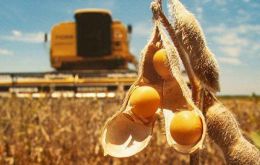
Argentina's soy harvest has progressed at a brisk pace over recent days, showing “excellent” yields that could push the crop higher than the currently forecast 53 million tons, the Buenos Aires Grains Exchange said in a report last week.
-
Thursday, April 4th 2019 - 09:46 UTC
Argentine soybean farmers sign delayed-price contracts hoping for a US/China trade deal and higher prices
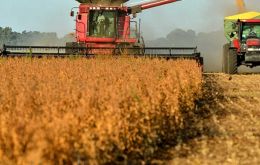
Soybean growers in Argentina are playing a waiting game, wagering on better prices ahead as the U.S. and China inch toward a trade deal and as nation’s currency keeps depreciating. Farmers on the Pampas arable belt have signed delayed-price contracts for almost three quarters of the 12.2 million metric tons they’ve sold to crushers and exporters so far, according to government data. That compares with 60% at the same stage last year.
-
Monday, March 4th 2019 - 21:39 UTC
Brazil's 2018/19 soy exports forecasted to decline : smaller crop and domestic prices higher
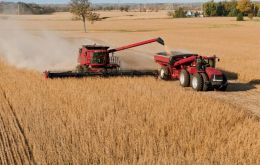
Brazil’s soybean exports are expected to come in 14-18% down on the year in 2019 due to lower production and reduced buying by China, industry reports showed.
-
Friday, February 1st 2019 - 09:59 UTC
Brazil and China prepare for first high-level political and economic talks since 2015
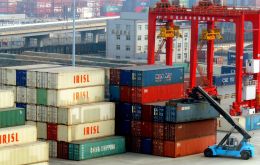
Brazil and China are expected to hold their first high-level political and economic talks since 2015 later this year, Brazil’s agriculture trade secretary said on Thursday, in a move likely to boost farm trade between the two countries.
-
Monday, January 28th 2019 - 08:32 UTC
Brazil's corn and soybeans January exports booming

Brazil is poised to export more corn than soybeans for the first time in a year this January, although sales of the oilseed remain high for the period, according to government and shipping data.
-
Friday, January 18th 2019 - 10:19 UTC
Doubts about Brazil's real soybean production estimate because of adverse weather
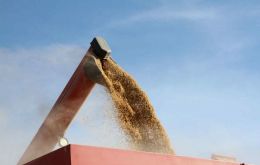
Analysts are casting doubt on the Brazilian government’s soybean production estimate. Conab, the government’s food supply and statistics agency, recently issued a forecast for 118.8 million tons of production, only slightly smaller than last year’s record 119.4 million tons.
-
Thursday, January 10th 2019 - 08:32 UTC
Brazil's soybean crop forecast cut 4.5m tons: hot spell in southern states

Brazil’s 2018/19 soybean crop forecast was cut to 116.9 million tons on Wednesday from 121.4 million tons late in November, said consultancy AgRural, blaming extreme heat and a dry spell in southern areas for the smaller projection.
-
Monday, January 7th 2019 - 08:50 UTC
Brazil's 2018/19 soy crop estimated at 122m tons and Argentina's, 56.5m tons

Estimates of corn and soybean production in Brazil and Argentina remain unchanged from private analytics IEG vantage last monthly report. The firm projected Brazil’s 2018/19 soybean crop at 122 million tons and Argentina’s crop at 56.5 million tons.
-
Wednesday, December 19th 2018 - 08:43 UTC
Abundant rains in Argentina's soy belt help expectations of a good harvest
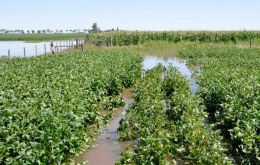
Rainstorms are sweeping Argentina’s soy belt, building soil moisture needed to guarantee good yields when crops blossom in February and providing some cushion for China to buy should its trade war with the United States continue to limit U.S. supplies.
-
Saturday, December 15th 2018 - 08:36 UTC
Brazil prepared if global soy market normalizes, following the US/China spat
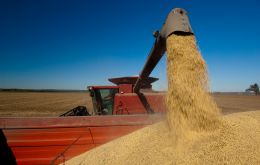
Brazil is prepared in the event China removes tariffs on U.S. soy, which had driven down prices for the oilseed in Chicago and driven up the premiums over U.S. prices paid for Brazilian beans, outgoing Agriculture Minister Blairo Maggi said on Friday.
